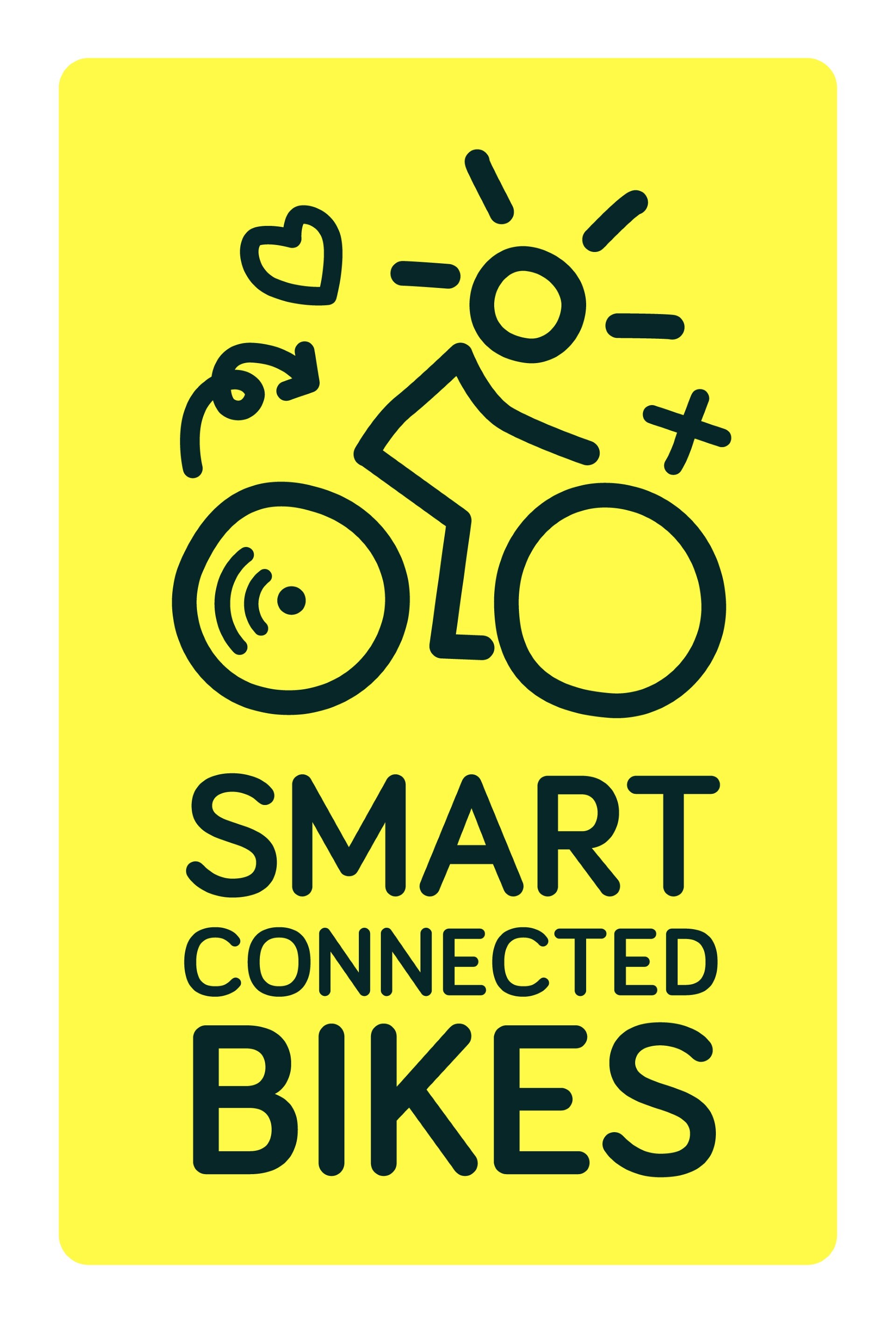Smart Connected Bikes: Enhancing Cycling Experience with Technology
Cycling is popular in the Netherlands and continues to grow in popularity. In recent years, record numbers of e-bikes have been sold in the country. While the increasing popularity of e-bikes has many advantages, the number of traffic accidents involving cyclists has steadily grown over the past decade. Simultaneously, new business concepts are emerging, and it is becoming increasingly challenging for bicycle manufacturers to distinguish themselves and to do so in a workable and affordable manner. The digital revolution, coupled with the influx of new technologies and materials, is poised to transform the appearance, function, and role of bicycles and e-bikes. E-bikes with integrated sensors and intelligence can lead to numerous new possibilities, a better user experience, increased safety, and improved quality. An essential aspect of the research is, therefore, enhancing the experience of cycling.
The University of Twente leads the program; we spoke with project leader Prof. Dr. Paul Havinga (Professor of Pervasive Systems) and Principal Researcher at TNO in May 2023. In late 2019, the Accell Group (a market leader in e-bike production) initiated a five-year collaboration with the University of Twente. Additional funding from the NWO Smart Industry program provided extra support to expand the research. "It started with a question from the Accell Group about the possibilities for a better cycling experience," says Paul. "It's a multidisciplinary project, larger than just the NWO project. The Accell Group already funded several PhD students, and now we could broaden the research scope; about the experience of cycling, technology, sensorics, AI, making cycling more enjoyable but also more interactive. In short, this project quickly expanded."
The Bicycle
The Smart Connected Bikes Research and Innovation program aims to develop and test a new ecosystem for connected bicycles that combines the capabilities of detection, wireless technology, and data science to make cycling and the experience of it safer, more reliable, and more comfortable. Accell Group, the main sponsor of this research, sees the bicycle as an essential part of an ongoing mobility and energy transition and recognizes the need to connect bicycles to infrastructure and other modes of transportation to generate new forms of mobility.
Partners
Currently, approximately 15 researchers are involved in the Smart Connected Bikes research. "We don't really see it as a project but as a program, and that influences collaboration. The students are complementary, but they also work together. And the beauty is that they take more initiative, and we can give tips," Paul proudly explains.
The University of Twente leads the program, with Paul as the project leader. Delft University of Technology and Saxion University of Applied Sciences have joined the consortium as academic partners. TNO supports the research within the data-sharing work package. The province of Utrecht, BAM, and the Dutch Institute for Road Safety (SWOV) are involved as public partners. During the research, a significant amount of data is collected, not only about bicycles but also about road quality, information about accident-prone areas, and even health-related data. While this partially falls outside the scope of the research, it is valuable for the project partners and beyond, as well as for cyclists themselves, of course.
A Lot of Practical Testing
Various events are organized within the research. "This also contributes to the positive atmosphere in this project," Paul explains. "For example, we organized a successful international hackathon at De Fietser, but also various cycling events in the country where we research topics such as pedal assistance. We are constantly observing with sensors, radars, and cameras, allowing us to have an enormous amount of data. We want to gain insight into 'what dangerous situations are' to 'what things people find enjoyable.' Everything related to the cycling experience. With TNO, we then look at the safety of this data because much of this data is privacy-sensitive and often personal."
Research on the Bicycle and the Cyclist
Cyclists and the use of bicycles vary from person to person, with the cyclist remaining in control; it remains a bicycle, albeit smarter, not an autonomous system. The research initially focuses on two user groups: commuters (using the bicycle for commuting) and the elderly. Students conduct various studies within the Smart Connected Bikes project. Research includes safety systems, in-depth studies on dynamic motor support and steering movements to avoid potentially dangerous situations, people's cycling experience, privacy-aware sharing of insights and mobile data, and wireless interaction between bicycles and cyclists, as well as between other road users and traffic infrastructure such as traffic lights. "Always with the goal of looking at the interaction and possible adaptations to bicycles. From signal processing, (a lot of) AI, to prediction to control. Everything is encompassed in this research."
The Future
Therefore, the research focuses mainly on improving the experience of cycling. "Safer, more enjoyable, easier, fewer repairs, simply a better cycling experience, and how... we don't know exactly yet. A lot of information and insights will be gained, but even after this research, we can delve much deeper into various themes that we cannot fully explore now. With the results from this research, the Netherlands can further profile itself as a cycling country. In short, a fun, challenging, and useful project," concludes Paul.
Gerelateerde 2
Bekijk hieronder de calls gerelateerd aan het thema Smart Connected Bikes: Enhancing Cycling Experience with Technology
